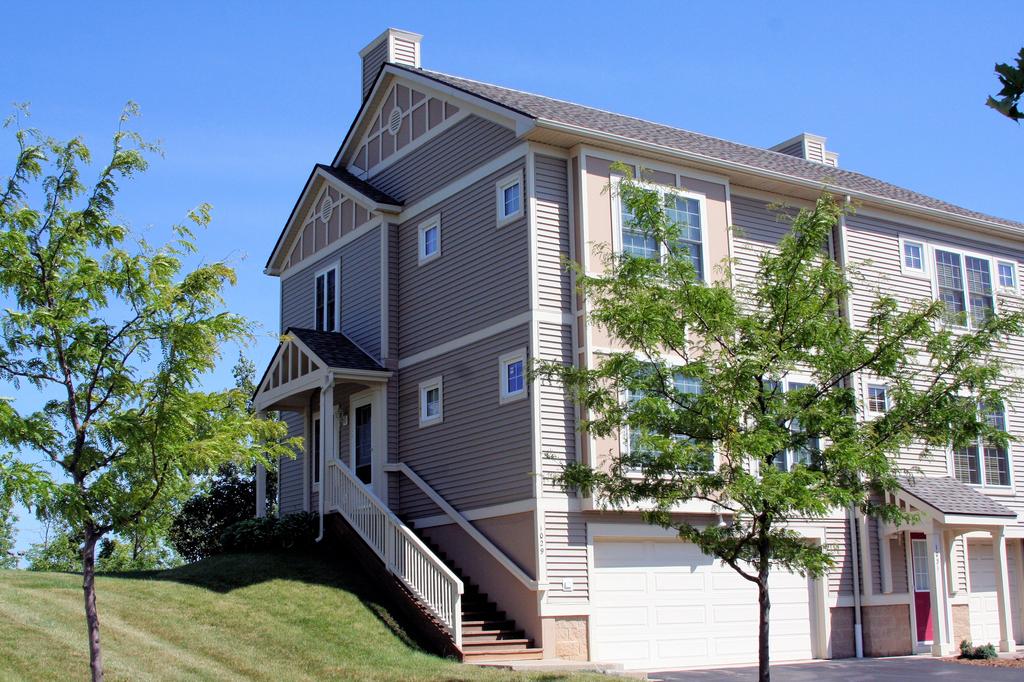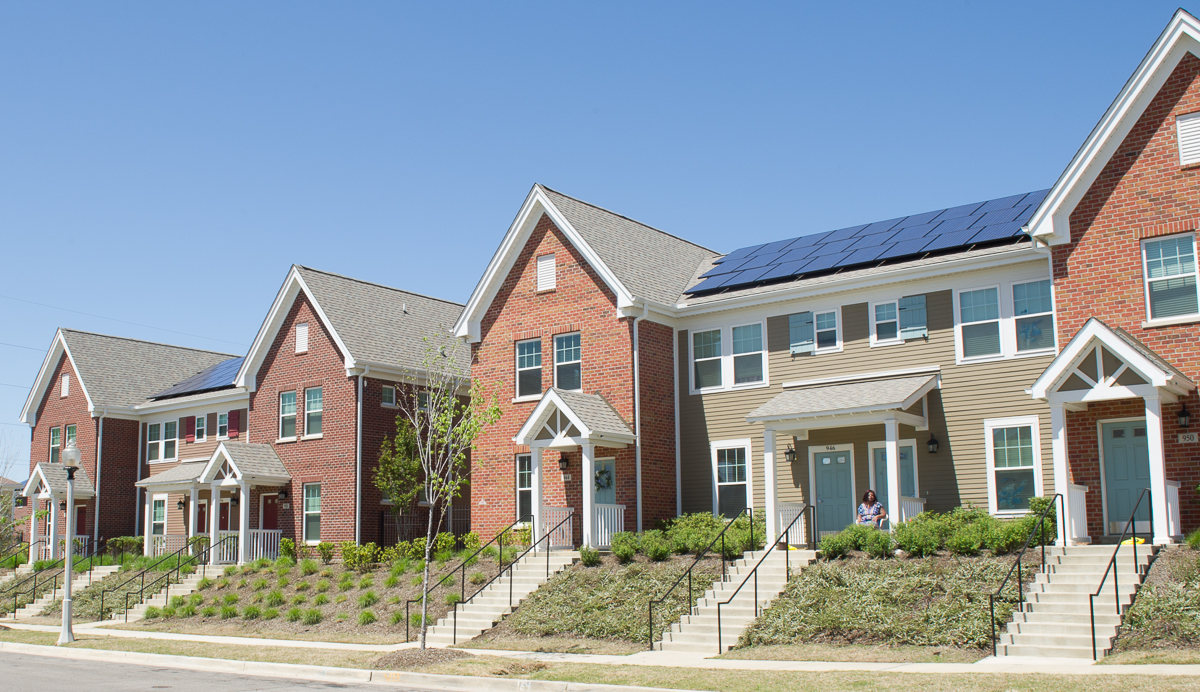Condos are short forms of condominiums. It is individually owned, but the amenities and common areas are shared among all the owners. The responsibilities are shared according to shared ownership, like paying into a condo association that takes care of the building and common areas. In a condo, you can own your unit, but you’ll also share ownership of the building. Condos come in all sizes and shapes, from small, single-level units to extensive luxury. It can be a great option for some people. Basically
The word in the English language, “condominium,” is derived from Latin. “Con” means “together with,” and “dominium” means “right of ownership.” When you own a condo, you’re sharing the right of ownership with the other owners of the building. The building bylaws contain the details of shared ownership, which are a set of rules that govern how the building functions and runs. Therefore, condos are a type of housing development available to buyers and renters. Depending on your budget or the type of lifestyle you live, a condo might be the perfect residence for you.
Meaning of Condominium

A condominium is a long form of condo. It is property ownership, where you own your unit but share ownership with the co-owners These types of properties are different from other types of properties, like single-family homes, where you have complete ownership of the entire property. Condominiums are popular housing options because they often come with shared amenities like garages, gyms, pools, and other common areas. They often have low maintenance costs and tend to be cheaper than single-family homes, but they can also come with rules and regulations you must abide by.
Condo owners buy a condo by depositing a down payment, paying closing costs, and paying a mortgage to build equity. Condo buildings might have shared amenities, like outdoor space, a gym, a laundry room, and a pool, but condo owners only own (and are entitled to renovate) the space inside their units. If you choose to rent a condo instead of buying it, you’ll typically have more direct access to the unit owner than you would if you were renting an apartment.
The Main Types of Condos

There are two main types of condos. They are:
- Freehold condos
- strata condos
Freehold condos, also known as fee-simple condos, are the most common type of condo. With a freehold condo, you own the unit and the land underneath it. You have the freedom to do what you want with your unit, within the rules and regulations of the condo association. You can sell your unit whenever you want, and you’re responsible for the taxes and insurance for your unit. Strata condos, also known as leasehold condos, are less common.
A strata condo is a condo where you own the unit but lease the land it’s on. The length of the lease is usually 99 years or longer. Strata condos typically have more restrictions than freehold condos, and you need to get approval from the condo association before making any changes to your unit. You may also have to pay a monthly strata fee to cover the costs of maintaining the common areas. As you can see, the main difference between the two types of condos is the ownership of the land. Freehold condos give you more freedom, while strata condos have more restrictions.
Condo Vs. Apartment

Apartments and condos might appear identical, but they differ in a few areas. Both usually have smaller square footage than a single-family home. A condo, or condominium, is a type of property ownership where you own your unit but share ownership of the common areas and amenities with the other condo owners. An apartment, on the other hand, is a rental unit that you do not own. With a condo, you’re responsible for maintaining your unit, but the condo association is responsible for maintaining the common areas and amenities. With an apartment, the landlord is responsible for maintaining the entire property, including your unit. Other differences are as follows:
1. Common area Maintenance
Condo unit owners are responsible for any repairs or replacements necessary for their homes, such as plumbing, drainage, or electricity. You also share ownership of the common areas and amenities of the building.
These common areas or shared spaces include things like the lobby, the hallways, the garages, the elevators, and any shared outdoor spaces.
You also share responsibility for the upkeep and maintenance of these areas with the other condo owners.
These shared areas and responsibilities are often called “common elements” of a condo building.
For an apartment, it is the management company that is responsible for paying maintenance costs, not the tenant, and they also hire people to fix them.
Apartments are individual residential units within a building or complex that are rented by their occupants. The entire building is usually owned by a property management company. In contrast, condos are residential units within a building or complex that are separately owned.
2. Ownership of home
An apartment building is usually owned and managed by a property management company or property manager who deals solely with the tenants. Apartment occupants basically rent their apartments from these property management companies and cannot renovate the space.
Condo owners own the space inside their individual units and are entitled to make renovations inside these units. If you’re renting a condo from someone, your landlord is likely a private citizen who owns the property and might live on-site.
3. Affordability
A key difference between a condo and an apartment is that a condo is usually more affordable. A condo owner might be subject to monthly fees that help to maintain common areas, community amenities, or the exterior of the condo community. The monthly payments for apartment renters usually only consist of rent and utility charges by outside companies
Pros and Cons of condos

Pros of Condos
1. Facilities and Amenities
Condos often have many amenities, such as gyms, pools, common areas, and security features. Contributing to a more comfortable and convenient lifestyle.
2. Low Maintenance
Exterior maintenance and landscaping are typically handled by the homeowners association. This is a great advantage for people who don’t want to worry about maintaining public areas.
3. Security
Condos often have security measures in place, including entrance gates, surveillance cameras, and on-site staff. This improves the overall safety and sense of security for residents.
4. Community Living
The 4,444 condominiums promote a sense of community with shared spaces and planned events. This can be a great benefit for people who like to connect with their neighbors and get involved in community activities.
5. Location
Condos are often located in urban or desirable areas, giving residents easy access to amenities, public transportation, and entertainment options.
Cons of condominiums
1. Association Fee
Condominium living requires a monthly association fee to cover maintenance and amenities. Although this ensures common areas are well maintained, it can place an additional financial burden on residents
2. Limited personalization
Individual owners of apartments may have limited freedom in the personal design of their living spaces compared to homeowners. This lack of autonomy in design decisions can be a disadvantage for some.
3. Rules and Regulations
Homeowner associations often enforce strict rules and regulations governing everything from pet ownership to noise levels. Some residents may find these rules restrictive.
4. Resale Value
The resale value of a condominium may not be as high as that of a single-family home. Economic factors, market conditions, and the overall attractiveness of the development can affect the value of your investment.
5. Dependence on the condominium association
Residents of condominiums depend on the management and decisions of the condominium association. If the association makes decisions that do not reflect the wishes of individuals, it may lead to dissatisfaction among residents. In summary, living in a condo has a mix of advantages and disadvantages. It is aimed at those who value comfort, community, and shared amenities, but may not be the ideal choice for individuals seeking complete autonomy and customization of their living space. It’s important to carefully consider your personal preferences, lifestyle, and financial factors when determining whether condo living matches your needs and priorities.
Condo vs Townhouse

Condos and townhouses are both popular housing options, each with its own unique features and benefits. Let’s take a closer look at the differences between these two types of residential properties.
Condominium
1. Real Estate and Structures
Condos stand for condominium, which is an individual unit within a larger complex or building. When you purchase a condominium, you own the interior of the unit, but the exterior, common areas, and grounds are typically the common property of all residents of the condominium community. This shared ownership model means that decisions about the building and its maintenance are made jointly by residents, usually through an association.
2. Community Living
Condominiums often promote a sense of community living. Residents typically share amenities such as swimming pools, fitness centers, and common areas.
3. Maintenance and Fees
The main advantage of condominiums is that exterior maintenance and repairs are generally performed by the condominium association. However, this comes at a price. Tenants are required to pay monthly association fees. These fees cover community costs such as landscaping, security, and maintenance of shared facilities.
Townhouse
1. Property and Structure
A townhouse, also known as a townhome or row house, is a single-story, multi-story home that shares walls with adjacent units. When you purchase a townhouse, you own the building and the land on which it is built. Townhouse owners are responsible for both the interior and exterior maintenance of their property.
2. Space and Privacy
Townhouses often offer more space compared to condos, both in terms of square footage and outdoor area. Although townhouses share walls with their neighbors, they usually have their own entrance and sometimes even a small garden. Therefore, you can have more privacy than in a condominium.
3. Homeowners Association (HOA)
Similar to condominiums, some townhouse communities have homeowner associations, but the responsibilities differ. Townhouse condos often focus on maintaining common areas and enforcing community guidelines. However, townhouse owners generally take more personal responsibility for the upkeep of their property.
Choose between condos and townhouses
Lifestyle: Consider what kind of lifestyle you prefer. If you want to enjoy living in a community with shared amenities, a condo may be right for you. If you value more independence and space, a townhouse may be a better solution.
Maintenance: Assess the extent to which you are willing to assume maintenance responsibilities. Condos often require less individual maintenance, while townhouses require more hands-on care.
Financial Considerations: Compare the costs associated with each option. Condominium association dues cover exterior maintenance, but there are additional monthly fees. Townhome owners, on the other hand, have more control over their spending but must budget for separate maintenance.
Resale Value: Find out the resale value of condos and townhouses in your desired location. Factors such as market trends and the attractiveness of community living can affect real estate values.
In summary, choosing between a condo and a townhouse comes down to lifestyle preferences, ease of maintenance, and financial considerations. Each option has advantages and disadvantages. Therefore, when making a decision, carefully evaluate what suits your needs and priorities.
Buying A Condominium

There is certain stuff you need to know before buying a condominium, or “condos” for short, a popular housing option. They’re especially popular among first-time buyers, young professionals, and empty nesters. But before you buy a condo, there are a few things you should know.
- Condos come with unique ownership and financial considerations that are different from single-family homes. They also have unique legal and maintenance obligations that are worth understanding. So, if you’re thinking about buying a condo, here’s what you need to know.
- A condominium is a type of housing unit where individuals own a portion of the building or complex and share ownership of the common areas. Unlike a single-family home, where you own the entire property, condos come with shared ownership.
You have exclusive ownership of your unit, but you also share ownership of the common areas and amenities with the other condo owners. In a condo complex, you’ll typically have access to amenities like a pool, gym, or playground. You’ll also have a say in how the common areas are maintained and managed.
3. Condos are usually located in multi-story buildings, but they can also be found in townhouse-style complexes or as stand-alone units. They’re often located in urban areas or near city centers, but they can also be found in suburban or rural areas.
Condos come in all shapes and sizes, from studio apartments to multi-bedroom units. They can be purchased as primary residences or as investment properties. When you buy a condo, you’ll become part of a community with shared ownership. This means you’ll have to abide by certain rules and regulations. These rules, called “condo bylaws,” are established by the condo association, which is a governing body made up of the condo owners. The condo bylaws cover things like maintenance, repairs, and finances. They’ll also cover things like noise levels, pet ownership, and the use of common areas.
It’s important to understand the bylaws before buying a condo, so you know what to expect. When you own a condo, you’ll also be responsible for paying a monthly condo fee. This fee covers the costs of maintaining and managing the complex, such as landscaping, cleaning, and security. It also covers any major repairs or renovations that are needed.
4. The condo fee is typically paid to the condo association, which is responsible for managing the complex. The association is also responsible for setting the rules and regulations that govern the community. It’s important to be aware of the condo association’s financial health.
You should ask to see the association’s financial statements, which will give you an idea of the association’s reserves and any debts or financial issues. If the association is not well managed, it could impact the value of your condo. So, before buying a condo, you should research the association to make sure it’s in good financial standing. Another thing to consider is the reservation of funds for your condo complex.
This is money that is set aside to cover future repairs and replacements. Some condos have healthy reserve funds, while others don’t have any reserves at all. If the reserve fund is low or non-existent, it could mean that you’ll be responsible for paying for major repairs in the future. This is something you should factor into your budget.
In addition to understanding the condo association and the reserve fund, you should also ask about the insurance requirements for your condo. Most associations require owners to carry insurance that covers the interior of their unit, but some also require additional coverage. The last thing to consider is the rules and regulations of the condo association. These can vary widely from one complex to another. Some associations have very strict rules, while others are more relaxed. It’s important to find out about the rules before buying a condo, so you know what you’re getting into. Some common rules include restrictions on pets, noise levels, and parking.
You should also find out how disputes are handled within the condo association. Some associations have a formal process for resolving disputes, while others may not. It’s important to know what to expect if you ever have a dispute with another owner or the association itself. Overall, there are a lot of factors to consider when buying a condo.
It’s important to do your research and ask questions before making a decision. It’s also important to work with a real estate agent who has experience with condos. They can help you navigate the process and find a condo that meets your needs. With the right research and the help of an experienced agent, you can find a condo that’s a perfect fit for you.
Managing Conflicts With the Condos Association
Managing conflicts with your condo association can be tricky, but it’s important to know how to handle them. The first step is to understand the process for resolving disputes.
Your condo association should have a conflict resolution process outlined in its bylaws. Review these bylaws to find out how conflicts are handled. Once you understand the process, it’s important to be respectful and polite when dealing with your condo association. Even if you’re frustrated, it’s best to avoid getting angry or making accusations.
If you’re having a conflict with a fellow condo owner, try to resolve the issue directly with them before involving the association. If you can’t resolve the issue, then the next step is to contact the condo association and follow their process for resolving disputes. If you’re having a conflict with the condo association itself, it’s important to be prepared with evidence and documentation to support your case.
Keep detailed records of any communication with the association, including emails, letters, and phone calls. If you’re not satisfied with the resolution offered by the condo association, you may be able to appeal the decision or take legal action. However, this should be a last resort, and you should seek legal advice before taking this step. By following these steps, you can manage conflicts
1. Review the condo association bylaws.
2. Be respectful and polite when communicating with the association.
3. Document all communication with the association.
4. Seek a resolution through the association’s process.
5. If necessary, seek legal advice.
By following these steps, you can manage conflicts with your condo association professionally and effectively.
Conclusion
Condos are a great option for many people. They offer the benefits of homeownership without the hassle of maintaining the entire property. With a condo, you can enjoy the amenities and security of a community while still having your own space.
Condos come in all shapes and sizes, from small apartments to large townhomes. There are also two main types of condos: freehold and strata. Freehold condos offer more freedom and flexibility, while strata condos have more restrictions. Ultimately, the right type of condo for you depends on your individual needs and preferences. So get ready to call your dream condo “home sweet home”!



